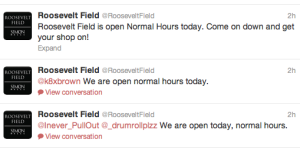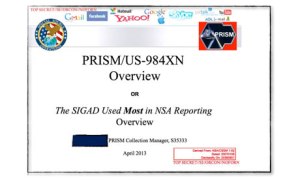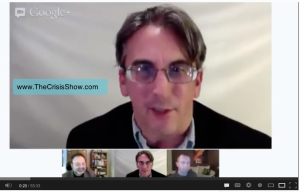Compassion. Humanity. How hard is that? Well, for Simon Malls, owners of Roosevelt Field mall in Garden City, Long Island, as well as Abercrombie & Fitch, guess they just can’t find the time to offer a statement of concern for the nine workers overcome by carbon monoxide poisoning this morning. Check out the tweets Simon/Roosevelt sent out a good three hours after the incident:
And this tweet from Abercrombie at 12:30 pm EDT today (June 20):
In today’s instant news cycle, it’s mandatory to post SOMETHING on social media — particularly your Twitter profile and Facebook page — in a crisis where people are hurt on or near your properties.
Instead of turning people off with “we’re open, come shop” the message should have been at least: “Our hearts and prayers go out to the workers injured today at our Roosevelt Field location. We’re working closely with authorities to investigate the cause.” (Simon Mall example).
Abercrombie could have said something similar.
Shame on Simon Malls and Abercrombie. Companies and organizations must put people first especially when lives are in danger.
Sometimes the problem lies at the top of the organization and other times it’s because companies employ junior social media people who have no clue about crisis situations or reputation management.
Either way, it’s an issue all companies must think about if they care at all about their long term reputation.





